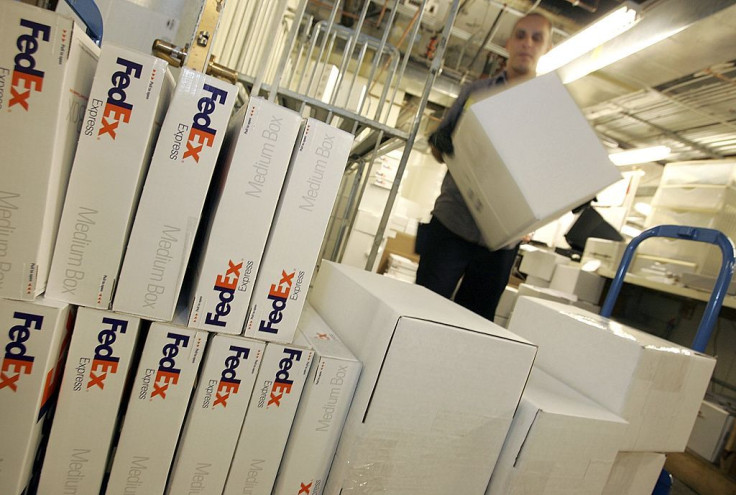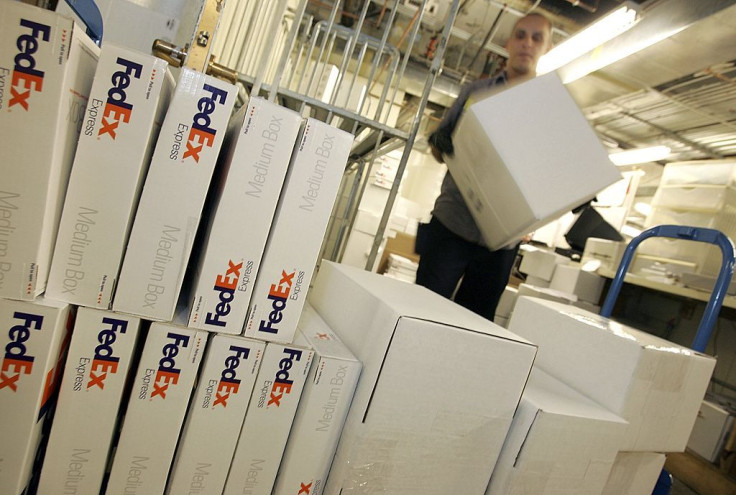Fedex Stock Drops More Than 5% After Cutting 2019 Forecast

For the second time since December, FedEx Corporation slashed its full-year earnings outlook, and this time saw its shares tumble more than 5 percent following disappointing fiscal third-quarter results.
Fedex issued weak full-year 2019 earnings per share guidance. It now sees EPS at $15.10 and $15.90 for the 2019 fiscal year ended May 31 compared with a forecast of $15.97, according to analysts surveyed by Refinitiv. The company said it expects fiscal fourth-quarter EPS between $4.58 and $5.38 compared to the estimated $5.39.
Profit for the fiscal third quarter (including the peak holiday shipping and gift return season) fell to $797 million, or $3.03 per diluted share. This result was far lower than analysts' average estimate of $3.11 per share.
“Slowing international macroeconomic conditions and weaker global trade growth trends continue, as seen in the year-over-year decline in our FedEx Express international revenue,” said Alan Graf Jr., executive vice president and chief financial officer.
CEO Frederick Smith admitted the fiscal third-quarter results were “below our expectations.” He also said FedEx is focused on ways to improve its performance in the future. The weak full-year outlook is fueling fresh worries FedEx is losing ground to delivery rivals such as United Parcel Service Inc and Deutsche Post DHL Group.
The package delivery industry is widely seen as a bellwether for the health of the global economy.
"Slowing international macroeconomic conditions and weaker global trade growth trends continue," said Graf.
Analysts are also blaming the company’s mounting weakness on the cost of launching year-round, six-days-per-week operations at FedEx Ground in the United States. Operations of the company’s international Express business, which includes Dutch delivery company TNT Express, are also palpably weaker.
FedEx bought TNT Express in 2016 for $4.8 billion and has had difficulties integrating it into its own network since then. Integration has also been far too costly. FedEx now expects integration costs to exceed $1.5 billion.

The company has restructured management, including those at its Express division, offered voluntary buyouts and limited discretionary spending to curb losses.
"FedEx Express has some serious problems,” Cathy Morrow Roberson, founder of consulting firm Logistics Trends & Insights, told Reuters. Then there are its far more aggressive competitors, who don’t seem to be suffering as much from the global economic slowdown.
UPS, which has less international exposure than FedEx, said its U.S. results helped buffer the impact of global economic slowdown. Deutsche Post DHL said it saw no noticeable signs of a slowdown on the horizon. It noted that its broad geographic and operational base makes it more resilient even if global economic growth continues to weaken.
© Copyright IBTimes 2025. All rights reserved.





















